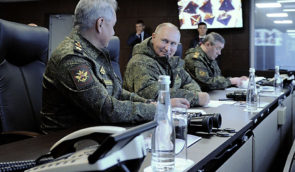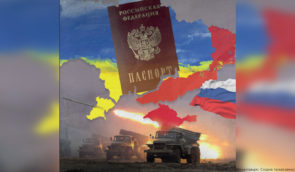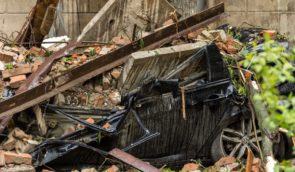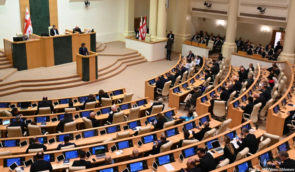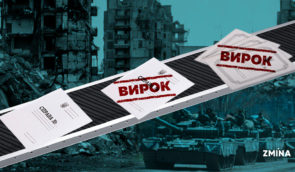Russia persecutes at least 25 Crimean residents for their faith as Jehovah’s Witnesses
The Russian Federation continues to illegally persecute members of Jehovah’s Witnesses in the temporarily occupied Crimea, according to the Reviewon the Human Rights Situation in Crimea during July – September 2023 by the Crimean Human Rights Group.
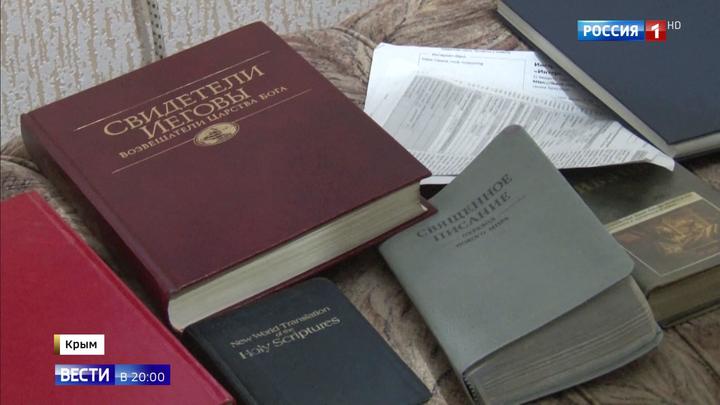
On August 14 and 16, 2023, at least nine homes of Jehovah’s Witnesses faithful were searched in four Crimean cities: Armiansk, Simferopol, Saky, and Dzhankoy.
In Simferopol Russian law enforcement searched the home of Kateryna Mel’nychuk. Crimean human rights defenders reported that the woman became sick afterwards. She was informed that a criminal case had been opened against her. During the interrogation, she was allowed to go home under travel restrictions.
The home of Dmytro Zakharevych in the Crimean city of Simferopol was also searched, and he and one more believer were placed under house arrest.
On July 28, 2023, Russians detained Jehovah’s Witness Viktor Ursu, aged 58, during the search of his home in Dzhankoy. On August 9, after staying two weeks in the detention cell, the illegal “Dzhankoy District Court” placed him under house arrest.
In September 2023, the illegal “Nakhimovskiy District Court” of Sevastopol commenced the trial in the criminal case of 31-year-old Jehovah’s Witness Maksym Zinchenko from the Crimean city of Feodosiya.
Zinchenko is charged under Article 282.2-2 of the Criminal Code of the Russian Federation about membership in an extremist organization. According to the investigators, since 2019, Zinchenko “has been organizing illegal meetings and speeches on religious documents, delivering sermons at the meetings held online, and communicating extremist ideas.”
Russian authorities have been persecuting Jehovah’s Witnesses since the mid-2010s, and on April 20, 2017, their Supreme Court banned their activities in Russia and declared them extremist.
On August 16, 2017, the Ministry of Justice of the Russian Federation added the Crimean units of Jehovah’s Witnesses to their list of extremist organizations.
These decisions have been widely criticised by human rights groups and the international community, and in June 2022, they were recognised by the European Court of Human Rights as inconsistent with Moscow’s commitments.
As reported by Jehovah’s Witnesses, at least 25 Crimean residents have been persecuted for their faith. Six of them have been serving sentences in the penal colonies. Since 2014, the occupying Russian authorities have made at least 98 searches of Jehovah’s Witnesses in Crimea and Sevastopol.
The Crimean Human Rights Group considers these lawsuits as violations of human rights and international humanitarian law.
According to the Crimean human rights defenders, the persecution of Jehovah’s Witnesses violated Article 9 of the European Convention on Human Rights, which addresses freedom of thought, conscience, and religion.
In addition, persecuting persons who are not criminals in Ukrainian law violates Article 7 of the Convention, which prohibits punishment without law, since according to international humanitarian law, Russia has no right to enforce its criminal law in the occupied territory.
The Crimean Human Rights Group asserted that enforcing Russian criminal law in Crimea violates the Fourth Geneva Convention, which constitutes a war crime that falls under the jurisdiction of the International Criminal Court.
Earlier this week, the Mission of the President of Ukraine in the Autonomous Republic of Crimea reported that about 191 people are known to have been illegally detained in the territory of Autonomous Republic of Crimea and Sevastopol, which Russia temporarily occupied, including 123 Crimean Tatars.
The human rights organization emphasizes that ignoring the war crimes of the Russian occupiers has led to a deterioration of the human rights situation in the occupied Crimea. The lack of response from the international community to the occupation of Crimea and the further crimes of the occupiers made it easier for Russia to turn the peninsula into a springboard for the invasion of mainland Ukraine a year ago.
Based on assessments of a human rights organization, Crimea SOS, 35% of political prisoners from Crimea charged with politically motivated grounds became imprisoned after Russia’s full-scale invasion. Most were accused of alleged involvement in the Islamic political organization Hizb ut-Tahrir or the volunteer Crimean Tatar battalion named after Noman Çelebicihan.
In July 2023, Wayne Jordash, the managing partner of Global Rights Compliance LLP, said that the International Criminal Court is not doing enough to investigate international crimes against civilians in Crimea.
The human rights community in Ukraine believes that the de-occupation of Crimea is necessary to stop the systematic and gross violations of human rights committed by the Russian Federation on the peninsula. They are urging other countries to support Ukraine with timely and sufficient supplies of weapons and military equipment.
On April 17, 2022, in his evening video speech, President of Ukraine Volodymyr Zelenskyy said that Ukrainian soldiers are paying with their lives for the time they wait for weapons to be delivered. This happens every time Ukraine’s partners delay or hesitate about weapons’ range or other characteristics.

